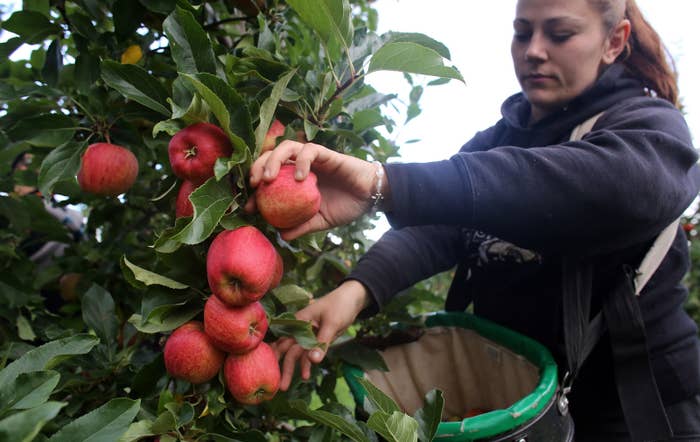
Backpackers and other temporary migrants to Australia who take up jobs picking fruits and vegetables have been paid as little as $5 per hour — well below the legal minimum wage — researchers at the University of New South Wales and University of Technology Sydney have found.
The Wage Theft in Australia report took responses from 4,322 temporary migrants from 107 countries working across all states and territories in Australia from September to December last year.
Temporary migrant workers make up around 11% of Australia's workforce. Despite media investigations into underpayment of these workers by businesses including 7-Eleven, the report's authors, UTS law senior lecturer Laurie Berg and UNSW law senior lecturer Bassina Farbenblum, said that no comprehensive study had been undertaken into the wages paid to temporary migrant workers across Australia.
The report found that despite a legal minimum wage for casual workers of $22.13 per hour at the time of the survey, a quarter of all international students earn $12 per hour or less, while 43% reported earning $15 or less in their lowest-paying job.
Almost one-third of total respondents said they had earned $12 per hour or less.

While the report found that wage theft was rife in range of industries, the work generally undertaken by backpackers — fruit and vegetable picking, and farm work — reported high underpayment, with almost one-third reporting earning less than $10 per hour, and 15% reporting earning $5 or less per hour.
Some 20% of temporary workers at convenience stores, or car washes, said they were paid less than $10 per hour.
Those who were on jobs paying from $6 to $12 per hour said they found the job more often by contacting the employer directly (24%) or via a friend or family member (23%) than through advertisements.
A majority of food servers (65%) and convenience store employees (58%) reported being paid in cash. The 4% who were paid at the proper rate were required to pay the employer back in cash. The report authors noted that this was already reported to be a common practice in 7-Eleven stores, but appears to be much more wide-spread with other industries than previously thought.
Some workers (91 of the respondents) reported that they had their passports confiscated by employers, while 173 respondents were asked to pay up to $1,000 as a "deposit" in order to get the job. A total of 92 respondents said that their employer or manager had threatened to report them to the Immigration Department.
More than half (55%) of those surveyed said they were international students, while 33% said they were working holiday visa holders.
Fifty per cent of tourist visa holders knew that they were being paid less than the minimum wage, while student visa holders (73%) and working holiday-makers (78%) were more likely to know the minimum wage situation in Australia.
“We found the overwhelming majority of international students and backpackers are aware they are being underpaid," Farbenblum said in a statement. "However, they believe few people on their visa expect to receive the legal minimum wage."
